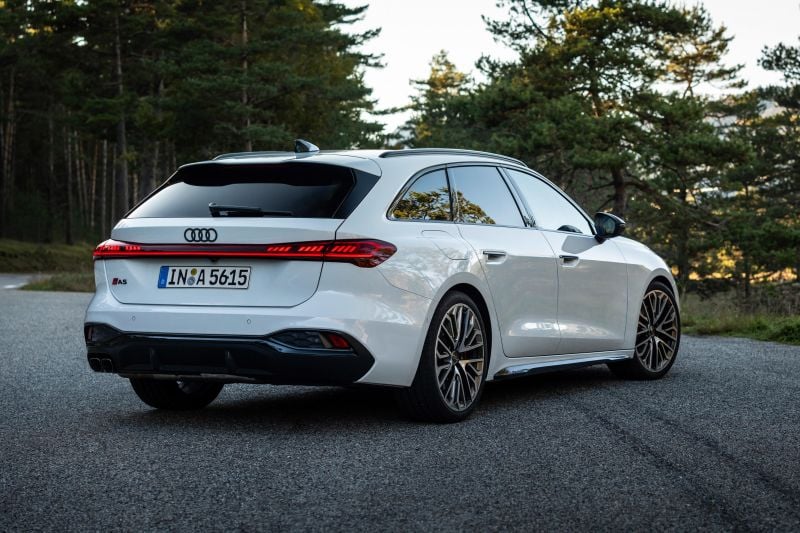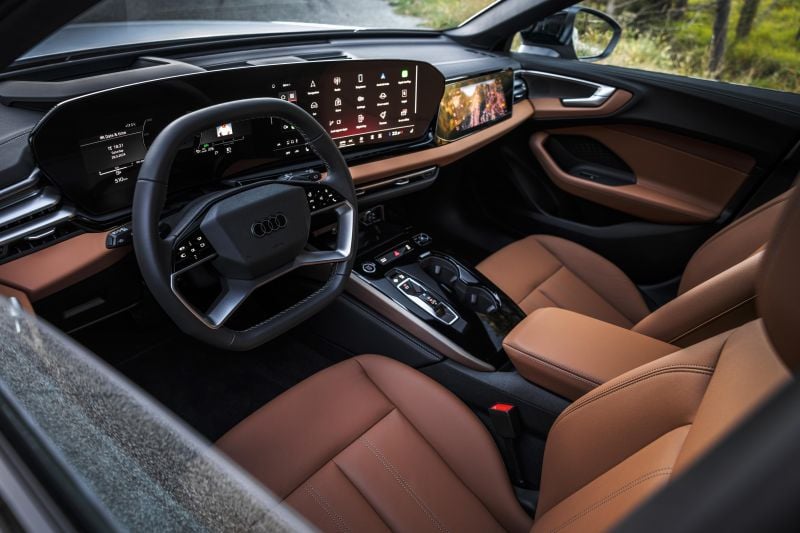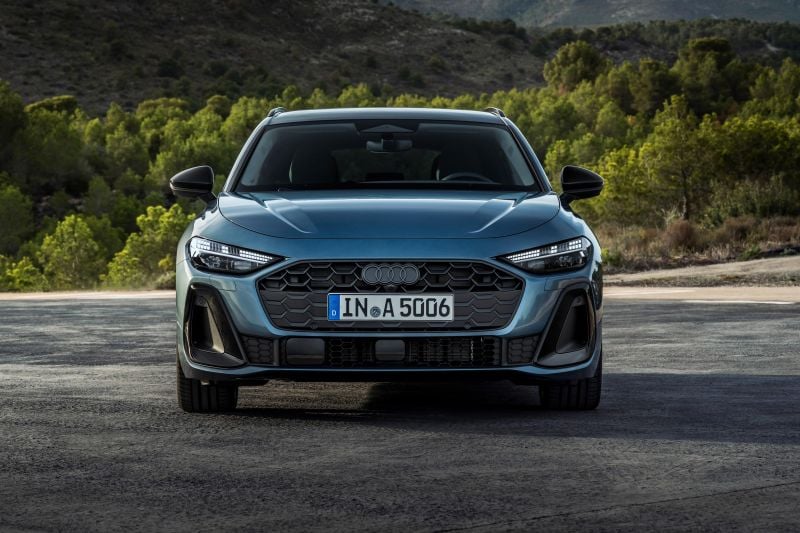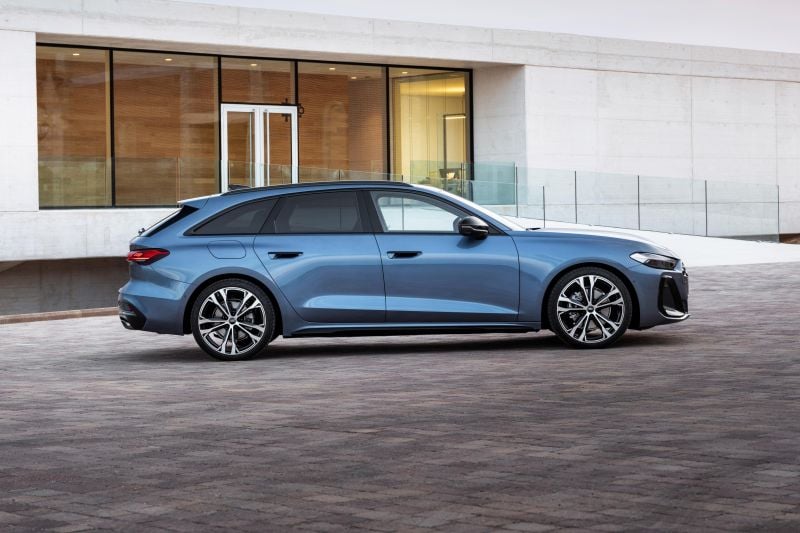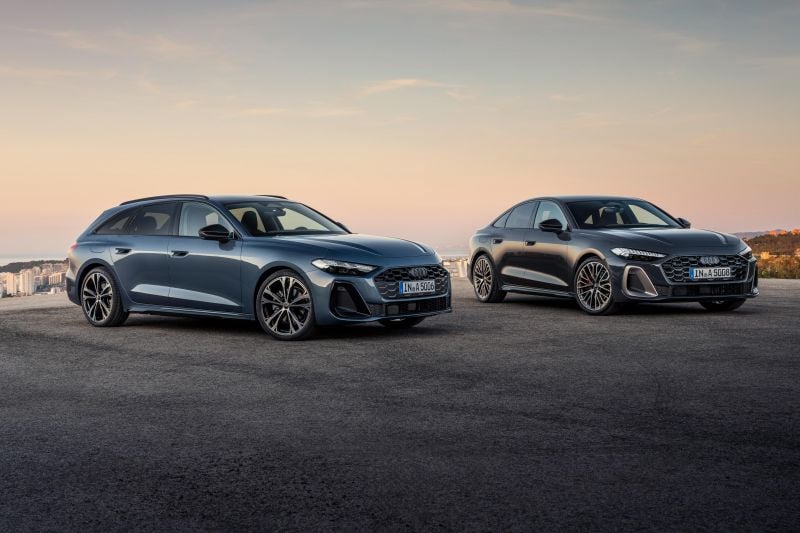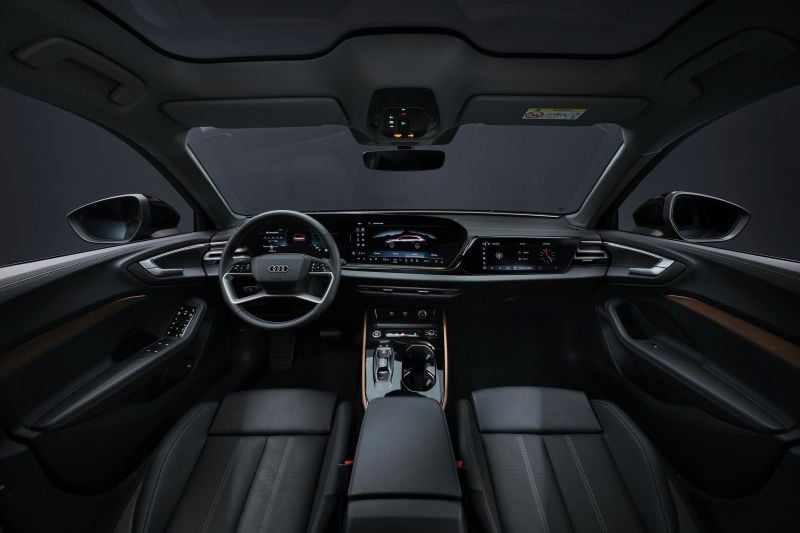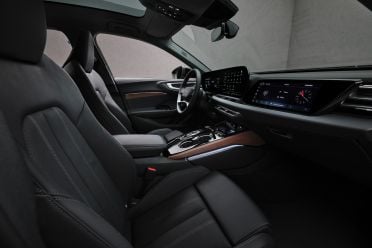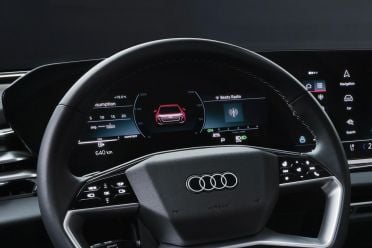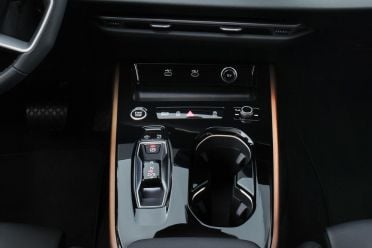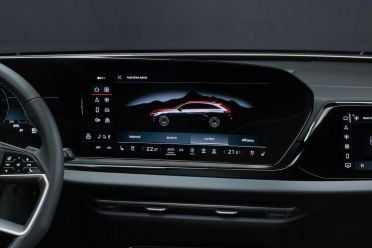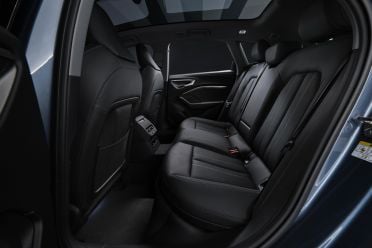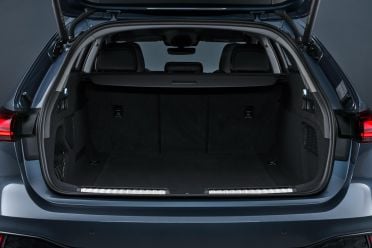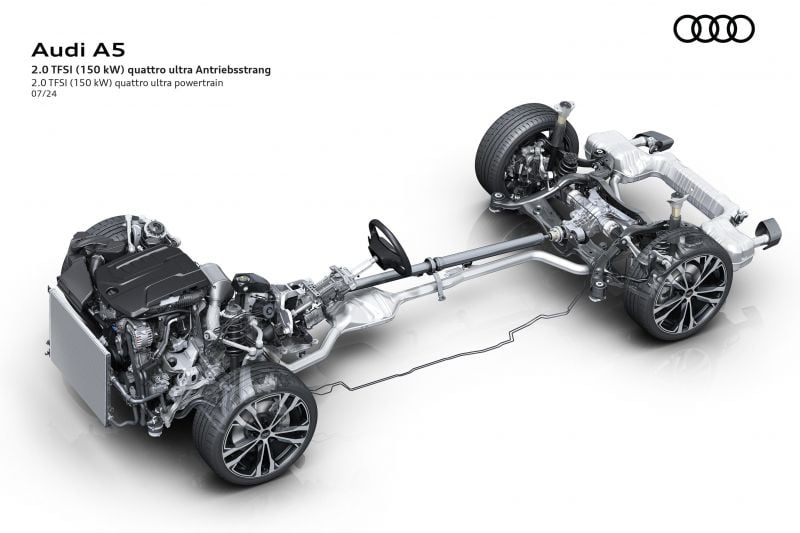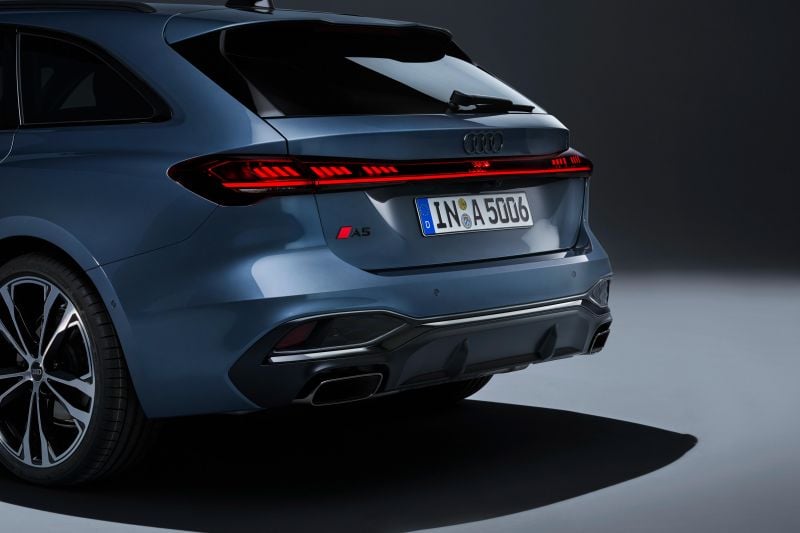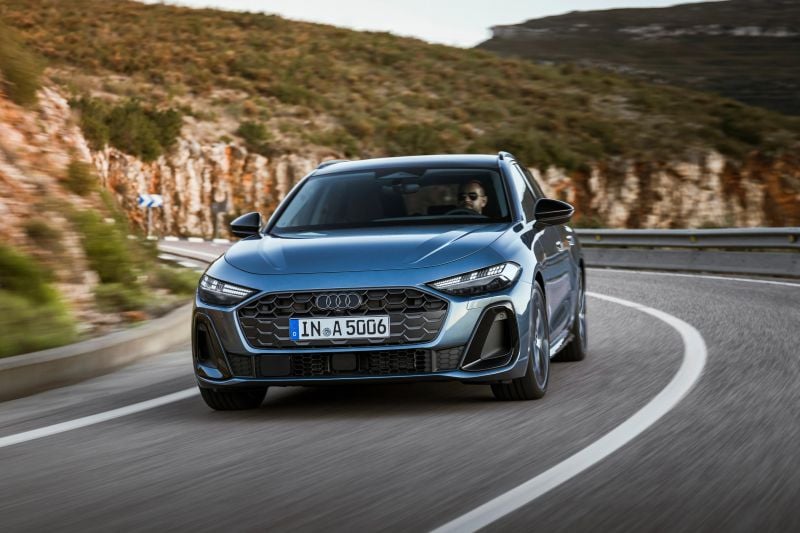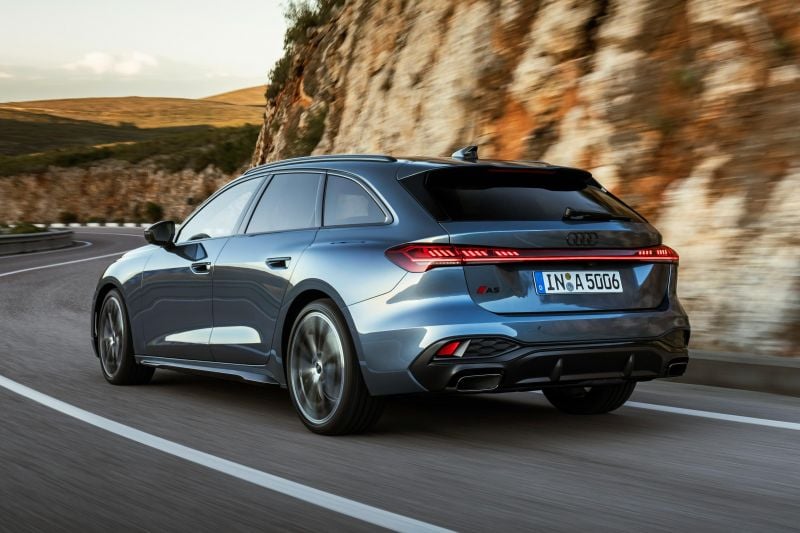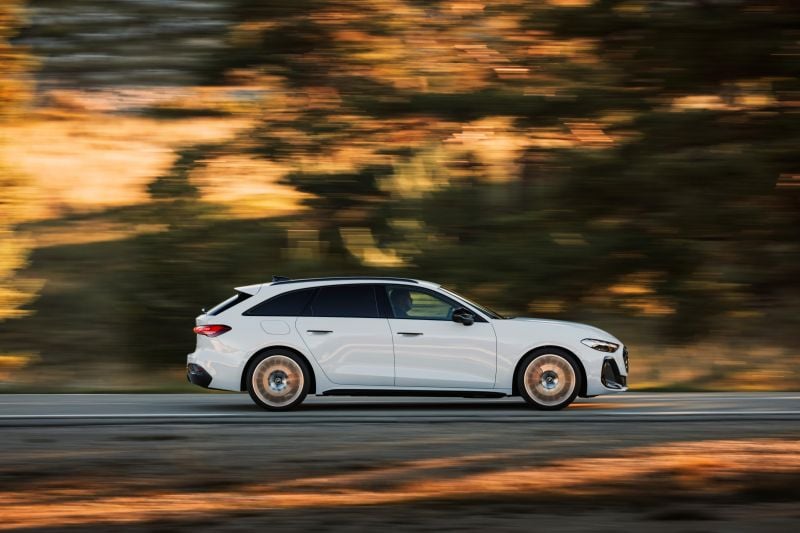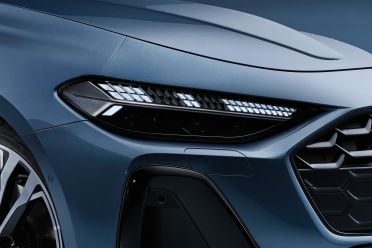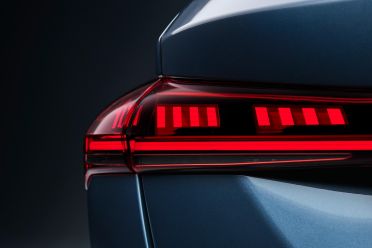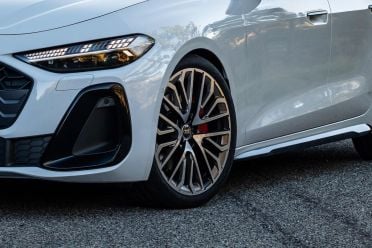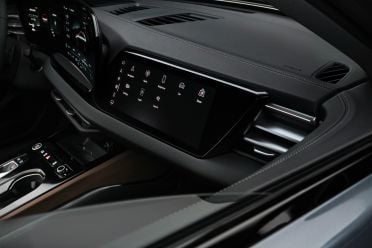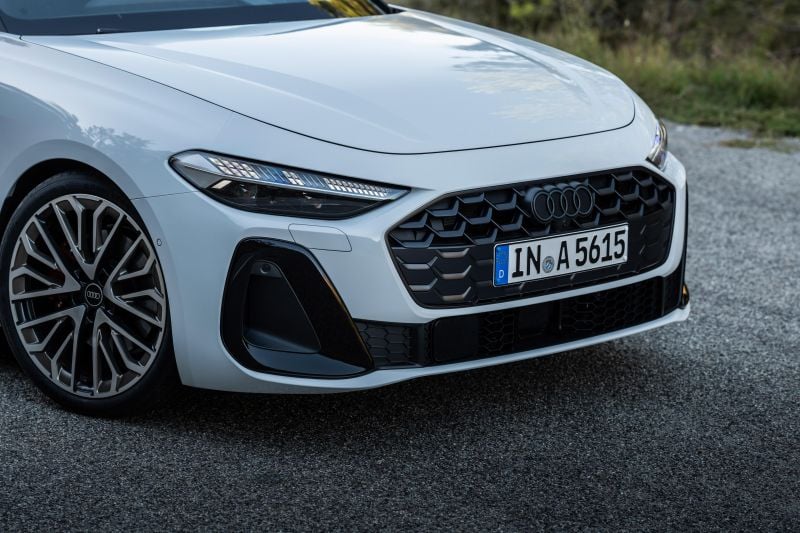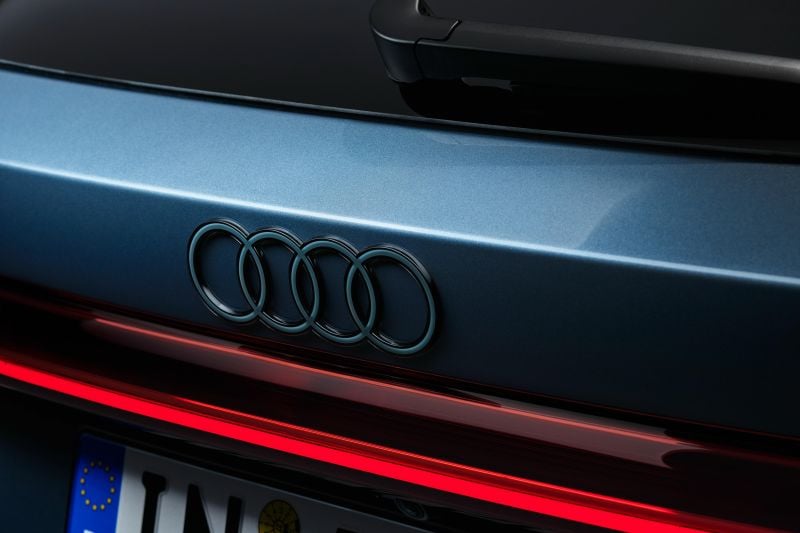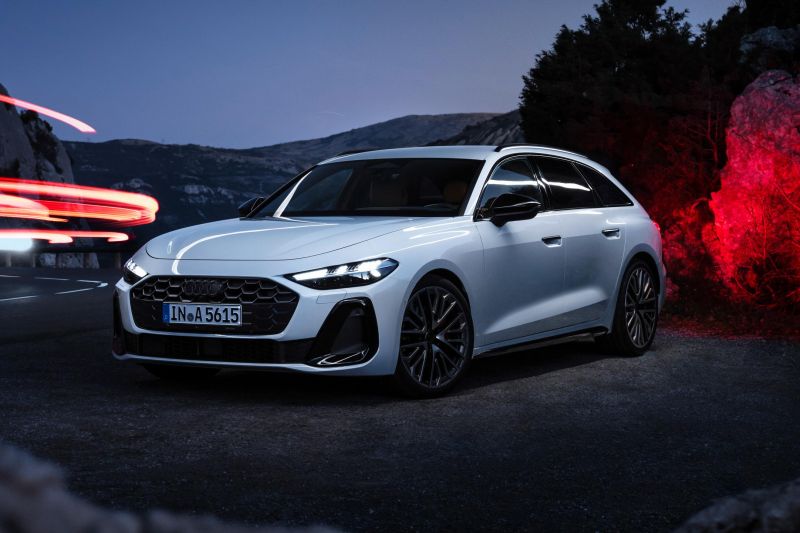In 1994 Audi launched an all-new replacement for its compact BMW 3 Series and Mercedes-Benz C-Class competitor, the 80, and gave it a new name, A4.
Fast forward-precisely 30 years and the A4 has become the A5, available in both sedan (liftback) and wagon (‘Avant’) body styles.
Piping-hot RS 5 flagships are likely to join the new S5 variants (read our review here), but replacements for the existing A5 coupe and convertible are not expected.
The rebranding is part of a company-wide strategy designed to make clearer the difference between Audi’s electric and internal combustion engine models.
Going forward, Audis powered by electrons will have model names with an even number, and those powered by good old-fashioned hydrocarbons will sport odd-numbered model designations.
The step-change from 80 to A4 in 1994 arguably involved more profound changes than does the 2024 transition from A4 to A5.
But Audi is positioning the A5 as a new vehicle, even though it has an awful lot of familiar hardware underneath its subtly redesigned skin.
Next to the old Audi 80, the original A4 looked revolutionary. Next to the outgoing A4, the new A5 appears evolutionary.
Appearances can be deceptive, though. The A5 is bigger all round than the outgoing A4, at 67mm longer, 13mm wider, and 11mm higher taller. Most importantly, however, the wheelbase has been stretched 80mm.
And while the A5 rolls on what is essentially an evolution of the Volkswagen Group MLB architecture that underpinned the A4, the platform has been renamed PPC.
PPC stands for ‘Premium Platform Combustion’, and the new nomenclature is designed to align it with – while differentiating it from – the PPE (Premium Platform Electric) architecture that recently debuted under the new battery-electric Audi Q6 e-tron and Porsche Macan.
Dimensional differences aside, the PPC is otherwise fundamentally MLB in terms of its multi-link suspension front and rear, and the fact its longitudinal four- and six-cylinder engines are mounted ahead of the front axle centre line. The big difference between PPC and MLB is in terms of its electronic architecture.
The A5 features a version of the E³ scalable end-to-end electronic architecture being rolled out across the Volkswagen Group. Dubbed E3 1.2, it is anchored around five high performance computers that oversee all vehicle functions from drivetrain and assistance systems to comfort and safety systems to infotainment and back-end networking.
The A5’s sheetmetal is all-new, and while the execution is at first glance doesn’t deviate from familiar Audi themes, the surfacing and detailing, combined with the dimensional changes, give the car a more sophisticated presence.
Among the key elements of the new exterior design are the broader and flatter single-frame grille, and the light bar extending right across the tail, both of which emphasise the car’s width.
Audi is especially proud of the lighting on the new A5. The optional matrix LED headlights and OLED tail-lights allow owners to choose from eight different digital light signatures.
The OLED tail-lights are next-level stuff, comprising six panels with 60 individually controllable panels per segment that can generate a new pattern several times a second, allowing the display to appear animated. Cleverly, the system ensures the overall light value always meets regulations.
It’s a handsome looking thing in the metal, the A5, particularly in Avant wagon trim and on the optional 20-inch wheels fitted to all the test cars we drove in France.
The biggest surprise is the A5 sedan isn’t a sedan. It’s a hatchback, or more correctly a liftback, with a bustle and a large tailgate that makes loading and unloading the boot a breeze.
How much does the Audi A5 cost?
The new Audi A5 and S5 range is expected to arrive in Australia in the first half of 2025.
Audi Australia has yet to confirm pricing, but European prices suggest the lineup will be only nominally more expensive than the outgoing A4, which is currently priced from $71,900 plus on-roads for the 35 TFSI S line sedan, and $84,615 plus on-roads for the 45 TFSI quattro S line Avant.
What is the Audi A5 like on the inside?
Audi wants the A5 to be seen as a rival to the Mercedes-Benz C-Class, the latest version of which is plusher and more luxuriously appointed than previous models, and so, as with the exterior, the interior of the A5 is chock-full of familiar Audi design themes tweaked to deliver a more upscale ambience.
From the driver’s seat the cabin is dominated by the panoramic curved display that arcs across almost two-thirds of the dash and includes a 11.9-inch configurable digital instrument cluster and a 14.5-inch MMI touchscreen display.
If that isn’t enough for you in terms of screens, an additional 10.9-inch display for the front seat passenger is available as an option. This screen allows your co-driver to visit websites, stream video content, navigate, or find a petrol station. A dynamic privacy mode means the driver cannot see distracting content, such as videos, while driving.
The execution is oddly clunky, though, the extra screen looking somewhat of an afterthought in an interior that is otherwise cleverly coherent.
The front door handles, for example, are integrated with trim elements that extend from either side of the dash, and ambient lighting strips that dive behind the screens, combined with indirect lighting underneath, make them appear to float in the cabin, especially at night.
An optional lighting strip that runs from A-pillar to A-pillar at the base of the windscreen does more than simply provide ambient lighting, however. Audi calls it a dynamic interaction light, and its different coloured LEDs are used to welcome occupants into the cabin and signal when the A5 is locked or unlocked.
Flick the indicator stalk, and the relevant end of the lighting strip pulses green in time with the indicators.
Much of the interior switchgear is familiar Audi fare, but the quality of the materials in terms of seat, door, and dash trims is a step up from the outgoing A4.
The grey-on-grey toned cloth seats in the A5 sedan we tested felt more cossetting than the leather-trimmed items, and the texture of the cloth added interest to the door trims and to the dash element stretching across the cabin underneath the screens.
That said, the brown leather trim on the seats, doors, and dash of the A5 Avant we drove delivered a classy two-tone ambience to the interior that makes a welcome change from boring black on black.
Not only does the A5 look much classier inside than the A4, it’s roomier, too. Most of that 80mm stretch in the wheelbase over the A4 has been dedicated to the A5’s rear seat passengers, who now have 72mm more legroom.
One gripe: While designers go out of their way to try and convince us it looks just like the lacquer finish on a $100,000 Steinway grand piano, the swathe of shiny black plastic on the A5’s centre console looks just like… a swathe of shiny black plastic. And not only will it soon be covered in fingerprints, but it’s also easily scratched.
What’s under the bonnet?
You’ll no longer be able to tell what’s under the bonnet of the Audi A5 by looking at the badge on the bootlid. Audi has dropped the cumbersome – and essentially meaningless – 35 and 45 TFSI badging used on the A4.
Australian A5s will be powered by mildly revised versions the familiar 2.0-litre TFSI four-cylinder petrol engine. The major upgrade is the adoption of a new variable turbine geometry turbocharger that helps the engine develop more torque at lower revs than before.
Other changes include a friction-optimised timing chain drive, the integration of charge air cooling into the intake manifold, improved oil supply to the crankshaft, and a fuel-injection system that runs at higher pressure.
As with the outgoing A4, the entry-level front-drive A5 gets a 110kW version of the TFSI engine that makes its peak power from 3900rpm to 6000rpm and maximum torque of 280Nm over 1400-3600rpm. Audi claims this engine will get the front-drive A5 from 0-100km/h in 9.8 seconds on the way to a top speed of 216km/h.
Quattro A5s are powered by a version of the TFSI engine that makes 150kW over 4300-6000rpm and peak torque of 340Nm over 1200-4000rpm. Audi claims the 150kW quattro models will get from 0-100km/h in 7.8 seconds, with the sedan hitting a top speed of 248km/h and the Avant 245km/h.
Neither engine gets the MHEV plus enhanced mild-hybrid system fitted to the 2.0-litre TDI diesel engine available in European markets, and to the 270kW 3.0-litre TFSI V6 that powers the new S5 sedan and Avant models.
In simple terms, the 48-volt MHEV plus system comprises a belt alternator starter, an e-motor mounted adjacent to the engine and transmission that acts on the transmission output shaft, and a water-cooled 1.7kWh lithium iron phosphate battery.
The system can provide up to 18kW and 230Nm on demand and recoup as much as 25kW through deceleration and regenerative braking, then send it to the battery.
Audi says the four-cylinder TFSI engine can be equipped with MHEV plus – it’s already available on four-cylinder petrol-powered Q5s in Europe – but chose not to offer the system on the petrol-powered A5 to make it more price competitive against the Mercedes-Benz C 200.
That’s a win for Australian consumers in another way, too. The MHEV plus-equipped A5 TDI diesel we drove on the launch didn’t feel as smooth to drive as the non-MHEV plus TFSI cars, mainly because of the system’s slightly clunky handoffs between electric and internal combustion power.
How does the Audi A5 drive?
Where has this Audi been hiding! Audi’s obsession with front-wheel drive and longitudinal engines mounted ahead of the front axle – which made all-wheel drive drivelines easier and cheaper to execute – has for decades resulted in cars that understeered.
Generations of Audi chassis engineers have thus spent millions of man hours trying to prove Isaac Newton wrong, to get their nose-heavy cars to handle more like their rear-drive rivals from BMW and Mercedes-Benz. With the A5, they appear to have cracked the code.
The A5 quattro responds obediently to the helm the moment you pull the steering wheel off centre, and the front-end grips resolutely through all phases of the corner. There is no discernable understeer, no sensation that the weight of the engine is trying to pull the nose of the car wide.
Audi engineers say the entire steering system has been stiffened to improve feel. Front wheel camber has also been increased, and the subframe bushings have been adjusted on the rear axle to minimise the delay in the build-up of lateral force between the front and rear axles.
Finally, the damper settings have been carefully tuned to control body motions.
True, there’s not a lot of adjustability in the chassis. The 150kW engine doesn’t have the muscle to instigate significant weight transfer to the rear wheels under acceleration, even though the all-wheel drive system will send up to 70 per cent of torque to the rear wheels under hard acceleration.
But, helped by the standard brake torque vectoring system, the A5 gets into corners much quicker and can hold higher mid-corner speeds than the A4 with little apparent effort. Be precise with your inputs and this Audi will sashay down a winding road at an impressive pace.
It might be slightly slower in a straight line, but the Avant quattro feels a smidge more alert into corners than the sedan. That’s because the wagon bodywork adds about 15kg to the overall mass, and it’s all over the rear axle, which makes the Avant rotate just a fraction faster on the change of direction.
There’s one caveat to all this: All our test cars were quattros fitted with the sportiest wheel/tyre combination – 20-inch wheels shod with 245/35 Goodyear Eagle F1 tyres – and the top-spec optional suspension.
The A5 is available with three different suspension tunes – Standard; Sport, which lowers the ride height 20mm; and Sport with EDC, which adds electronic damper control to the mix. It also comes with wheels ranging in size from 17- to 20-inch.
Based on our experience in France, the chassis fundamentals feel good, but we’ll be interested to get behind the wheel of an A5 with the standard suspension and standard wheels and tyres to confirm it.
What do you get?
Australian standard specification for the 2025 Audi A5 hasn’t been confirmed yet.
2025 Audi A5 highlights:
- Alloy wheels
- LED headlights
- Power tailgate
- 11.9-inch digital instrument cluster
- 14.5-inch touchscreen infotainment system
- Satellite navigation
- Audi Assistant
- Wireless phone charger
In other markets the Audi A5 is available in three exterior trims: Basic, Advanced, and S line. The S line gets larger front intakes either side of the grille, and a more aggressive faux diffuser at the rear.
The S line is also available with a black exterior package that features a black grille, side sill trims, door handles, window trims, and mirror housings, as black aluminium trim strips around the side windows and blacked-out exhaust outlets. The Audi ring badges at the front and rear of the car are finished in anthracite grey.
Buyers can choose from 11 exterior paint colours, two of which – Grenadine Red and Horizon Blue metallics – are new for the A5.
Optional Extras
Three equipment packages are available: Tech, Tech Plus, and Tech Pro. Highlights include:
Tech includes:
- LED headlights
- Three-zone automatic air-conditioning
- Audi MMI Plus
Tech Plus includes:
- Matrix LED headlights
- Front passenger display
- Comfort package Plus
Tech Pro includes:
- Digital OLED rear lights
- Heated steering wheel
- Heated front and rear seats
- Sports suspension with electronic damper control
Other available options include:
- 10.9-inch passenger display screen
- 20 speaker, 810W Bang & Olufsen 3D audio system with head restraint speakers
- Panoramic glass roof with switchable transparency
- Electric steering column adjustment with memory function
- 19- and 20-inch alloy wheels
- Matrix LED headlights
- OLED tail-lights with active digital light signature
- Dynamic interaction interior lighting
Is the Audi A5 safe?
The Audi A5 is yet to be independently tested by Euro NCAP, but comes with all the usual active and passive safety systems and is available with a number of sophisticated driver assistance systems.
Standard safety equipment hasn’t been confirmed for Australia yet. Highlights for European-spec models include:
- Rear parking aid with distance display
- Cruise control
- Lane departure warning
- Attention and fatigue detection
Optional safety features in Europe include:
- Emergency Assist
- Active Front Assist
- Parking Assistant Plus
- Traffic sign-based speed limiter with speed adjustment.
How much does the Audi A5 cost to run?
As with other Volkswagen Group brands in Australia, all new Audi models are covered by a five-year, unlimited-kilometre warranty. In terms of servicing, Audi offered three- and five-year servicing packages, with service intervals set at 12 months or 15,000km for the A4, and this is likely to continue with the A5.
No local fuel consumption figures are yet available, but Audi claims fuel consumption of 7.6L/100km to 6.6L/100km for the front-drive A5 with the 110kW engine on the WLTP combined cycle, and 7.9L/100km to 6.6L/100km for the A5 quattro with the 150kW engine.
CarExpert’s Take on the Audi A5
Audi wants the A5 to be perceived as a more premium vehicle than the A4. And in terms of the exterior and interior design, it has succeeded. The bigger and roomier A5 is indeed a more sophisticated looking car than its predecessor.
More importantly, that sense of sophistication also extends to the way the Audi S5 drives. This Audi feels as comfortable and premium as a Mercedes-Benz C-Class, yet, thanks to steering that feels better than that of a BMW 3 Series, is enjoyable to drive briskly on a winding road.
Interested in buying an Audi A5? Get in touch with one of CarExpert’s trusted dealers here
Click the images for the full gallery
MORE: Everything Audi A5





